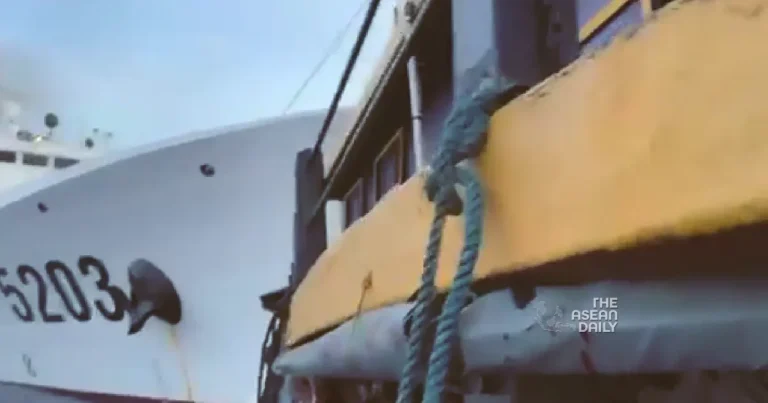28-3-2024 (MANILA) In a firm rebuke against allegations of journalistic impropriety, the Foreign Correspondents Association of the Philippines (FOCAP) has vehemently rejected China’s claim that Filipino journalists manipulate videos captured during routine resupply missions in the hotly contested South China Sea. The scathing response comes in the wake of comments made by China’s Assistant Minister of Foreign Affairs, Hua Chunying, on the social media platform X, formerly known as Twitter.
The controversy erupted on March 26 when Hua insinuated that the Philippine government conspires with journalists to portray the nation as a “victim” in the long-standing territorial dispute. Specifically, she accused the Philippines of carrying reporters aboard resupply vessels bound for the grounded warship BRP Sierra Madre in the Second Thomas Shoal, an area that has witnessed frequent confrontations between Chinese coastguard vessels and their Philippine counterparts.
“The Philippines always carries many journalists on board and had them manipulate the videos they recorded to make sensational news and project the Philippines is a victim,” Hua alleged in her inflammatory post, which was subsequently reposted by the Chinese Embassy in Manila.
FOCAP, the esteemed organization representing foreign correspondents based in the Philippine capital, swiftly issued a strongly worded statement, taking “deep offence at the insinuation that the press is a ‘troublemaker’ and in cahoots with the government to forward a political agenda.” The statement underscored the association’s unwavering commitment to journalistic integrity and independence, asserting that “a free and independent press reports not what they are told, but what they observe.”
The FOCAP’s unequivocal denunciation resonated with the Philippine Coast Guard, the agency tasked with escorting the civilian vessels engaged in the resupply missions. In a post on X, a spokesperson for the Coast Guard defended the nation’s steadfast commitment to freedom of speech and press, stating, “China seems to have overlooked the fact that in a democratic country like the Philippines, we highly value freedom of speech and freedom of the press.”
The heated exchange highlights the simmering tensions between the two nations over the strategic waterway, where China’s expansive territorial claims have frequently clashed with those of the Philippines and other Southeast Asian nations. Foreign and local journalists, including Reuters correspondents, have routinely accompanied these resupply missions, bearing witness to the unfolding events in the disputed waters.
As the war of words escalates, the FOCAP’s resolute stance serves as a powerful reminder of the indispensable role of a free and independent press in upholding transparency and holding power accountable. The association’s refusal to be cowed by China’s accusations underscores the unwavering commitment of journalists to report the facts, even in the face of intense geopolitical pressures.




